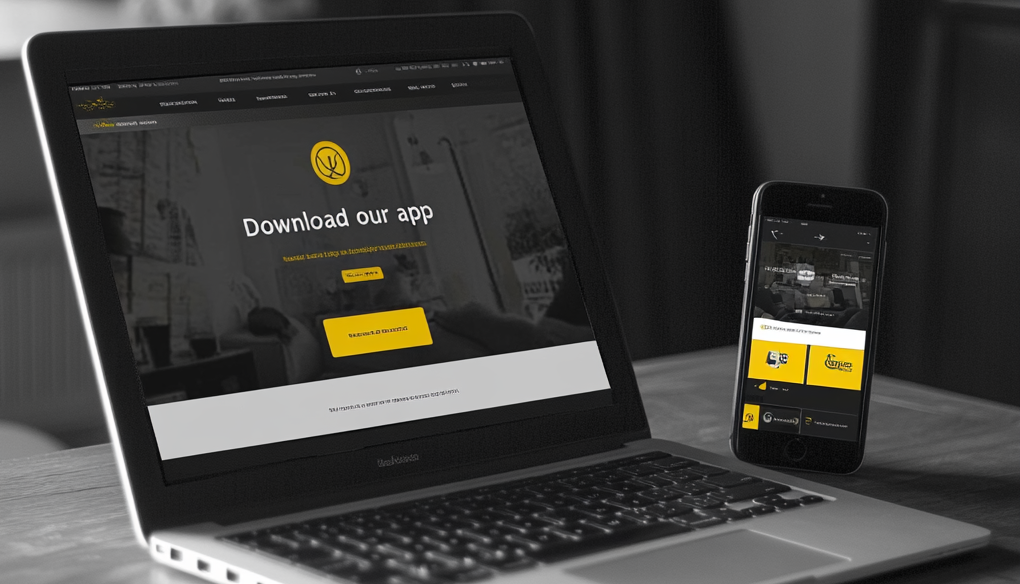Fostering strong relationships with B2B clients is more crucial than ever, with the business landscape becoming more and more competitive. As companies strive to maintain an edge, B2B loyalty programs have emerged as a strategic tool to enhance client relationships and drive long-term success.
This article investigates the significance of B2B loyalty programs, exploring their benefits, defining their structure and examining the various value aspects and types available. By understanding these elements, businesses can leverage B2B loyalty programs to not only retain clients but also to create substantial and sustainable value.
Written by Karin Rise, Senior CRM & Loyalty Manager and Julia Stopner, Business Consultant Analyst, on March 5, 2025 | Reading time: 6 minutes
The Imperative of B2B Loyalty Programs
In the current climate of rising business costs and increasing customer demand for personalized experiences, B2B loyalty programs are gaining traction. Research indicates that acquiring new customers is five to seven times more costly than selling to existing ones, underscoring the value of investing in strategies that enhance customer loyalty and satisfaction[1]. At the same time, 60% of business clients report that they have never experienced a brand interaction that has made them feel special[2]. This shows the untapped pool of opportunities that the B2B loyalty area presents. Karin Rise, Senior Manager of Curamando’s CRM and loyalty practice states that B2B loyalty is a key way to cater to the needs of business clients while at the same time introducing a cost-effective way of marketing.
The benefits of B2B loyalty programs are manifold. A majority of companies with active loyalty programs experience a 10% reduction in customer churn compared to those without[3]. Moreover, well-designed and executed programs can yield a return on investment (ROI) of two to four times[4].
Karin Rise elaborates: “By focusing on retaining customers, B2B organizations can drive increased sales per customer, improve customer retention and loyalty and increase customer referrals to gain new ones. Additionally, loyalty programs provide enhanced customer data, enabling the development of new revenue streams and services aligned with customer needs and preferences”.
Defining B2B Loyalty Programs
B2B loyalty programs are coordinated initiatives aimed at strengthening long-term relationships with clients. Unlike traditional sales activities, these programs reward loyalty through systems offering a structured approach to benefits and incentives. To be classified as a loyalty program, an initiative should fulfill four main criteria:
- Official Registration: Participants must sign up to access program perks, signifying their commitment and allowing the company to allocate resources effectively.
- Structured Framework: The program must have a clear outline of rewards and the actions required to earn them, along with well-defined terms and conditions.
- Program Communication: The program should be distinctly branded and regularly communicated to members, keeping them informed about points, offers and changes.
- Exclusive Control: The company retains full authority over the program, including the ability to modify its framework and terms.
The defining characteristics of a B2B loyalty program include a focus on creating practical benefits rather than emotional connections. In contrast to B2C programs, which often target individual consumers, B2B programs cater to entire companies, requiring a different approach. The rewards in B2B programs also tend to focus on long-term benefits and personal relationships rather than time-limited offers, reflecting the nature of business relationships.
Types of B2B Loyalty Programs
B2B loyalty programs can be categorized into three main types: Efficiency Boosters, Business Enhancers and Knowledge Connectors. Efficiency Boosters mainly offer practical perks to help clients save money and manage their business effectively, such as discounts, bonus points and management tools. Conversely, business Enhancers focus on providing value by helping clients increase their knowledge of company products and develop their business through training sessions and premium support. Knowledge Connectors instead enhance value by inviting clients to events and training sessions, facilitating the expansion of their business networks and knowledge exchange.
By strategically selecting the right type of loyalty program, companies can align benefits with the specific needs of their clients, ensuring that the program is both relevant and impactful. This approach maximizes the program’s effectiveness and return on investment. For instance, in the software industry, companies often adopt Business Enhancer programs. These programs provide training sessions and premium support to help clients maximize their use of software products, thereby fostering deeper client relationships and enhancing product adoption. On the other hand, the travel industry frequently utilizes Efficiency Boosters, offering discounts and bonus points to streamline business travel operations and provide cost savings, which are highly valued by corporate clients managing travel budgets.
A concrete example of a successful program is Staples Business Advantage which exemplifies an Efficiency Booster, offering mid-to-large corporate clients discounts, online tools to visualize spend and dedicated account management to help solve procurement needs. Members also receive next-day deliveries and more flexible payment terms. In contrast, Mailchimp & Co’s program serves as a Business Enhancer, providing partners with such things as training, a community for networking and early access to new software features, thereby enhancing their business capabilities and growth potential. Meanwhile, the My EY program acts as a Knowledge Connector, offering clients access to EY technologies, insights and datasets, along with opportunities to tailor content based on their interests. This fosters a rich environment for knowledge exchange and professional development.
Suitability of Implementing B2B Loyalty Programs
Creating a B2B loyalty program can come with many benefits, but it is critical to carefully consider when to implement one since there are scenarios where such initiatives may not be appropriate. For instance, industries with ethical considerations, such as legal or medical services, may be better off avoiding loyalty programs to prevent perceptions of bias towards certain customers. Likewise, restrictions can also pose challenges, particularly in sectors like alcohol and tobacco, where marketing practices are heavily regulated.
Additionally, companies with niche or complex customer bases might find it difficult to create a program that offers value to a significant portion of their clients. This may also be true for products with long sales cycles or those viewed as commodities, like steel; Customers might not be interested in extra perks since they tend to avoid paying attention to the products for a majority of the time.
Lastly, industries where switching costs are high, such as banking, may not require loyalty programs, as clients are already disinclined to switch providers. Businesses should carefully assess these factors to determine the suitability of a loyalty program within their specific context.
Conclusion
In conclusion, B2B loyalty programs are a vital component of modern business strategies, offering structured frameworks to enhance client relationships and create long-term success. There is no one one-size-fits-all. Rather, it is through understanding the importance of these programs and exploring the various value aspects and types available that businesses can leverage these loyalty programs to their maximum potential.
How Curamando Assists in Loyalty Excellence
Curamando offers extensive solutions to help businesses navigate the complexities of modern loyalty programs. With an established process, we tailor loyalty programs to fit the specific needs of each of our clients. As part of Eidra, our consultancy collective, we do this in collaboration with our partner companies, leveraging the expertise of professionals within business development, marketing and technology across the group. Our CRM and Loyalty team delivers comprehensive consulting services, encompassing the entire spectrum from crafting loyalty strategies and concepts to their full implementation and value realization. With Curamando’s expertise, businesses can effectively implement these trends, ensuring a competitive edge in the loyalty landscape.
Read more about our loyalty offering
[1] https://www.forbes.com/councils/forbesbusinesscouncil/2022/12/12/customer-retention-versus-customer-acquisition/
[2] https://www.pwc.com.au/digitalpulse/b2b-loyalty-programs.html
[3] https://www.arrivia.com/insights/b2b-loyalty-programs/#:~:text=Companies%20with%20a%20B2B%20loyalty,10%25%20reduction%20in%20customer%20churn.
[4][4] https://www.openloyalty.io/insider/loyalty-program-roi





